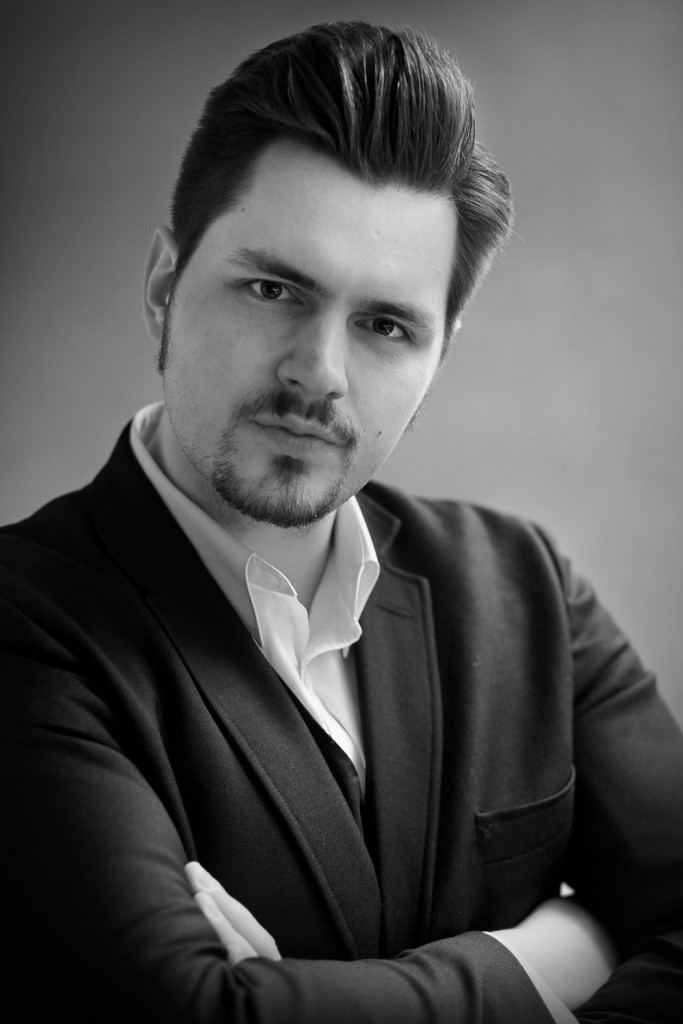
Jēkabs Jančevskis
(18.04.1992 )
Jēkabs Jančevskis – one of the most outstanding and beloved composers of his generation – started composing while still being a student, receiving commissions from the most acknowledged Latvian musicians and performer groups. Jančevskis started his musical education at Riga Music School No 1, graduating the piano class; afterwards he finished the Riga Cathedral Choir School with a diploma in choir conducting. While still at the elementary school Jančevskis showed interest in the field of composition, optionally studying with composers Ilze Arne and Pauls Dambis. A particular encouragement to study composition professionally was given by Ēriks Ešenvalds who urged him to take part in competitions, attend new music concerts and analyze scores.
Jēkabs Jančevskis entered the Jāzeps Vītols Latvian Academy of Music, finishing his bachelor studies and obtaining a degree in composition with Professor Selga Mence. Presently Jančevskis is studying for his master’s degree (Jānis Petraškevics class). The composer himself teaches composition at the Riga Cathedral Choir School, is the leader of vocal ensemble Jūti and conducts choirs Sōla and Anima.
Jančevskis’ music is a beautiful enigma – it contains a heart touching message without setting any highbrow filters; it bears a veil of true soulfulness, enticing to uncover it and listen to the music again and again, and again. His compositions encompass a romantically masculine world of sounds, solemnly contemplating on the phenomena of this world and life. Jančevskis’ music counterbalances emotionality, striking tunefulness and compositional wisdom, encompassing a deliberative and skilfully constructed form, original whirls of texture and good taste with regard to the mental experience, revealed in the music. It honestly reflects the emotional world of a human being, though transcending one owns pathos and reservedly, yet elegantly embodying a metaphysical level of the message in music. Even though the composer mainly chooses to focus on deep topics – man and his relations with the world or historical events from a today’s perspective – he is no stranger to humour and irony when speaking of the modern capitalist society. This becomes particularly explicit in his composition for orchestra Trakās dienas, which fairly and sarcastically depicts the madness of Christmas shopping. Choir music takes up a significant part of Jančevskis creative work – his compositions have been performed by the MDR Leipzig Radio Choir and world renowned Latvian professional choirs – Latvian Radio Choir and State choir Latvija – as well as chamber choir Ave Sol and the best youth choirs. Jančevskis has a particularly close collaboration with Māris Sirmais, the artistic director of State Choir Latvija, and Kaspars Ādamsons, the artistic director of choir Sōla, who have performed Jančevskis’ music on many occasions already.
The composer has written music for theatre plays and films as well. Jančevskis’ mother is an actress, and the theatre environment has provided the first amazing impressions for the world of music. Uncountable hours behind the scene and in the theatre boxes, as well as participation in several plays and films – all of it helped shape Jančevskis’ melodic imagination and experience, allowing him to create countless piano improvisations on his theatre experience at an early age already.
Jēkabs Jančevskis has succeeded in various composition competitions and has been nominated for one of the most significant awards in the cultural life of Latvia – the Diena Annual Award in Culture in category Music.
Jančevskis says “(..) my music is not explicitly complicated for the time being, though I don’t deny that I am fascinated by such masterpieces of other composers. My music emphasizes the emotional depth, an unending dramaturgical progression and evolution, the stability and steadiness of the form and as much a vivid instrumentation as possible. I think it is important to speak frankly about the topicalities and events of the era in music, it is important to be timid neither of deep experiences, nor flickers of emotion. I feel that there are people who understand me.”
Prepared by musicologist Lauma Malnace, translated by Madara Bernharda-Adamsone.
